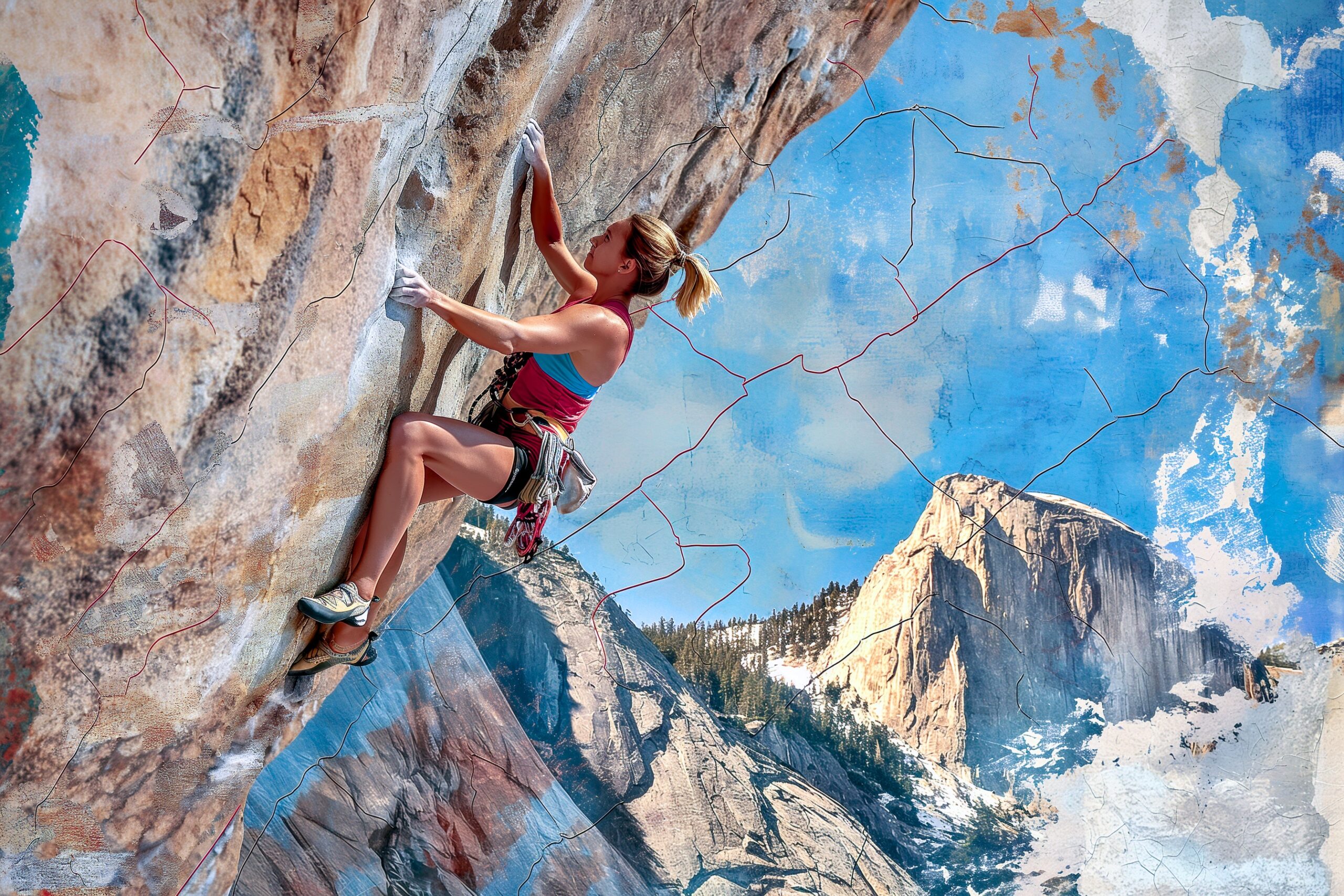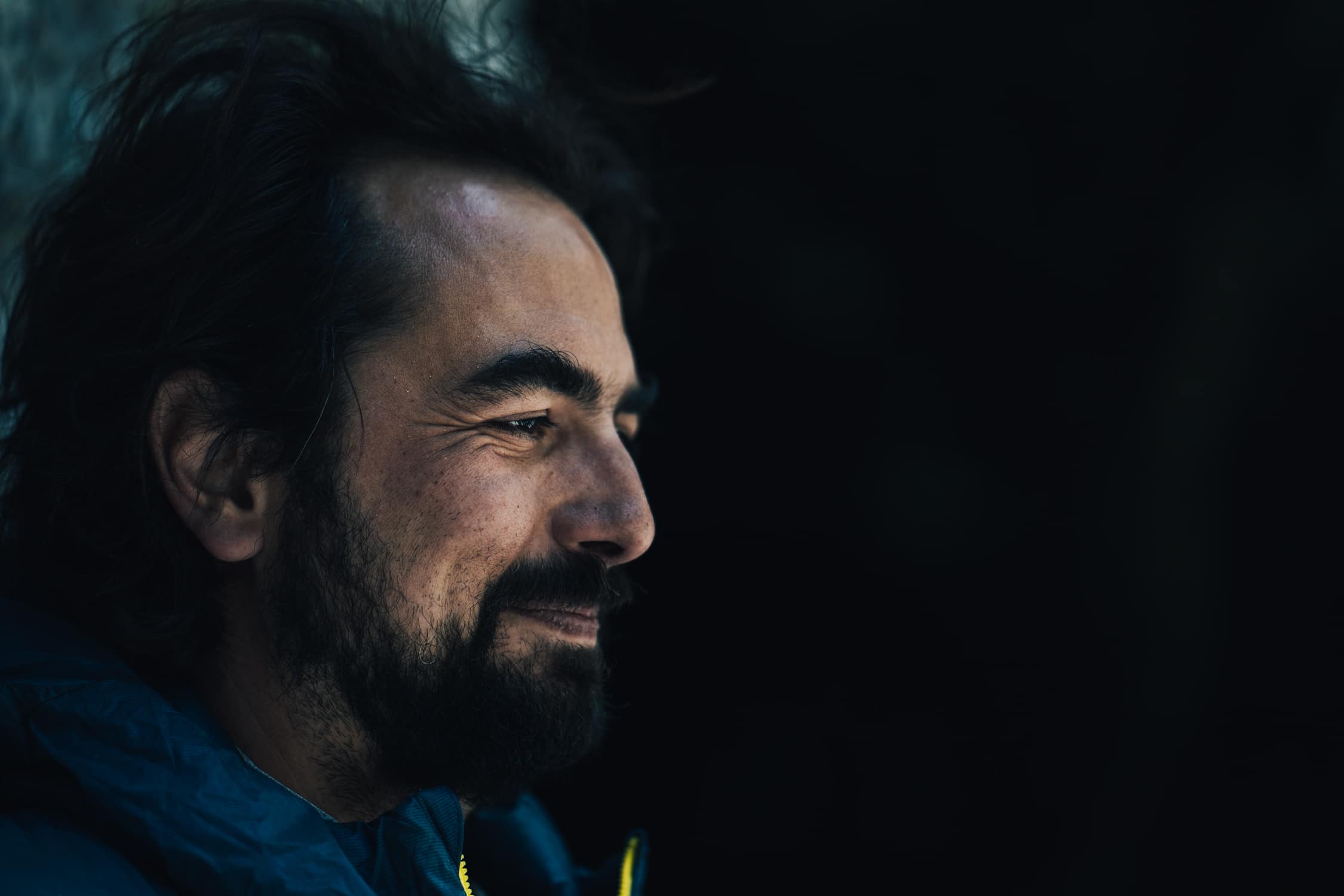Have you ever gone to a new crag without a guidebook and just picked a route that looks good to you and climbed it? You don’t know how hard it is, what its name is, whether it’s runout or safe, if it’s “good” for short people, if your friend who weighs as many pounds as you did it, the beta, the number of cams or quickdraws you’ll need, nothing at all. You just pull onto the rock and see what happens.
Adventure in climbing need not always come in the form of some big expensive expedition to the greater ranges. (If you haven’t schlepped duffle bags of climbing gear via donkey, can you really call yourself a climber, bro?) You can contrive the excitement of steeping into the anxious unknown in even the most mundane climbing situations simply by making choices like not pathologically watching a dozen beta vids before you attempt to climb a boulder problem.
I get the sense that most climbers today, however, think that going climbing without poring over all of the readily available information online is as insane as sitting at a coffee shop by yourself without a screen to stare at. It’s hard to remember, but people used to do these things all the time. Things such as navigating to crags without having its GPS coordinates plugged into an app that tells you which way to turn your steering wheel, or spending 15 quiet minutes drinking coffee without being stimulated by an endless feed of vapid influencer content. Just you and your thoughts and the world in front of you. Like a psycho.
I’m not telling you anything you don’t already know when I say that we’re swimming in a sea of information, all of it readily available at our fingertips. Our access to information and knowledge is a great thing, of course. But information and knowledge aren’t the same as experience, which has its own vital epistemology and utility. And who are we if not a collection of experiences? The quality and content of those experiences shape what kind of people we are becoming each day—as we are all always becoming. We are all projects, works in progress, never a final version of ourselves. Given that experience is so important to this project of becoming, it behooves us to consider the nature of these experiences beyond their ostensible goals or end points. That’s true for life in general, but especially for frivolous things like climbing.
It’s a heavy lift to convince people that there is any merit in doing things the “hard way,” especially when that thing is climbing, which is hard enough as it is. But anyone who has put in the effort to, say, figure out the beta for themselves, may know how even an additional effort that is this small can increase your satisfaction with the whole process.
Though I’m certainly happy to kneebar my way up a route, I’ve also intentionally chosen to not kneebar certain climbs, knowing that taking the harder approach will ultimately help me become a better, fitter, stronger climber (if not also earn the original grade of the climb and not get take it at a bargain, but that’s a different discussion). Not kneebarring a climb might seem stupid and arbitrary given all the advances of beta information available, and I would never begrudge you the opportunity to call me a fucking dumbass for doing it the hard way. But this is only a bad approach if you think about your climbing experiences through a single, narrow dimension: sending routes, ideally as quickly as possible.
Sending is obviously important—maybe the most important part of the climbing experience—but don’t think for a second it’s all that matters. So what if something takes you 20 tries instead of 10. You become stronger in the process and get the full grade points? When you do a full accounting of the totality of your experience beyond just the end result, you may find a justification for doing things the hard way that supersedes other considerations.
Someone recently sent me the Mountain Project page for Wills of Fire, the classic V6 highball in Joe’s Valley. He directed my attention to the comments, where at least half of all comments link out to YouTube and Instagram to show people The Beta for this problem.
There’s a beta vid featuring “short girl beta.” There’s a beta vid just for tall people. There’s a beta vid for the “5’7” -1 ape-index” climber. There’s “5’10” neutral ape beta.”
It’s worth pointing out that all these beta vids basically have the same beta. I mean, there’s only about seven different holds on this problem, so there is there is only a finite number of permutations in which they could be grabbed. Once you filter for what’s morphologically possible by an average human body, you would probably end up with just two or three different sequences, max. A V6 climber should theoretically be able to crack this code by themselves without watching even one beta video, right?
I’m not trying to make fun of people for posting beta videos, or even for watching them before trying the problem all by yourself, like a big boy or girl. But I think there is value in reflecting on our modern predicament in which we’ve come to expect everything to be so readily available to us—from information, to food that can be prepared and delivered straight to our mouths, to the endless reams of climbing content that show you every single part of the climbing experience so you can vicariously experience it all before actually experiencing it all.
A lot of technology is created for the purpose of removing the unknown from our lives. Like everyone, I appreciate this when it means I get to find the four-star restaurant on a road trip instead of just parking at the two-star hole in the wall that gives me raging diarrhea. I enjoy watching YouTube videos about how to change my car’s broken whatever before I just start ripping bolts out of the engine. There’s no need to be a purist when you’re trying to DIY your car repair because sometimes things just need to get done. (Like sending, too.)
Climbing videos and beta can be tools of empowerment: giving you the confidence to try something that you might otherwise be too scared to do.
But sometimes it’s nice to experience what it feels like to figure things out by yourself. Do it for no other reason than embracing the anxiety of stepping into the unknown—especially when it’s as low stakes as seven bouldering moves. Maybe it takes you longer. Maybe you fail. Finding these opportunities to not be influenced by what’s available to you online is getting harder and harder to do these days. But like everything else, maybe that’s what makes it so valuable.




0 Comments